|
"Those who expect to reap the blessings of freedom must...undergo the fatigue of supporting it." --Thomas Paine: The American Crisis, No. 4, 1777 On this Memorial Day, I am thankful that the closest I have ever come to experiencing life in a war zone is by reading about it or listening to the oral histories of World War II and Vietnam veterans. And so a list of books, including straightforward nonfiction and memoir, that can begin to make that which is incomprehensible -- the personal experience of war -- understandable. 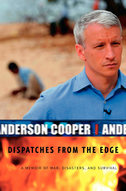 Dispatches From The Edge Anderson Cooper (2007) The correspondent and anchor for CNN recounts events from his life and career, offering a behind-the-scenes look at some of the most devastating modern tragedies (in Burma, Vietnam, and Somalia) and their effect on his own life. 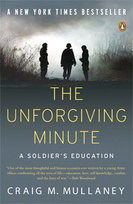 The Unforgiving Minutes: a soldier's education Craig Mullaney (2009) From a blue-collar upbringing, Mullaney rose to graduate from West Point, became a Rhodes scholar, and then an Army Ranger. He takes an unflinching look at the ways in which his extensive military education did and did not prepare him for his experiences in Afghanistan, and how those experiences shaped his views, and his later work as a Naval Academy instructor. 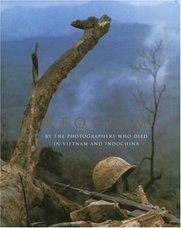 Requiem: by the photographers who died in Vietnam and Indochina (1997) A photographic essay that takes readers on an emotional journey into the wars in Indochina, Cambodia, Vietnam, and Laos. Divided into five sections, the book begins with the early notions of the wars, continues through the escalation, and ends with the final days of the conflicts. Essays are included on some of the photographers, providing readers with a glimpse into the lives of these brave men and women. The photographers' accounts of the fighting provided to various news wires are also included, but the photographs are so poignant and moving that they virtually tell the stories on their own.  The Forever War Dexter Filkins (2008) The New York Times correspondent provides a firsthand account of the battle against Islamic fundamentalism, from the rise of the Taliban in the 1990s, to the terrorist attacks of 9/11, to the wars in Afghanistan and Iraq, offering a study of the people involved from all sides of the conflict. 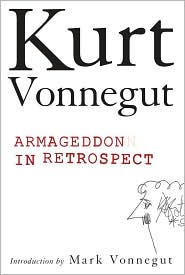 Armageddon in Retrospect Kurt Vonnegut (2008) Twelve previously unpublished writings on war and peace include such pieces as an essay on the destruction of Dresden, a story about the first-meal fantasies of three soldiers, and a meditation on the impossibility of shielding children from the temptations of violence. 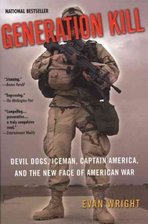 Generation Kill: Devil Dogs, Iceman, Captain America, and the new face of American war Evan Wright (2004) Wright rode into Iraq on March 20, 2003, with a platoon of First Reconnaissance Battalion Marines—the Marine Corps' special operations unit whose motto is "Swift, Silent, Deadly." He writes a gripping narrative on the lives of these twenty-three soldiers who led the attack, describing their training and the physical and psychological challenges they faced in skirmishes leading to the fall of Baghdad. 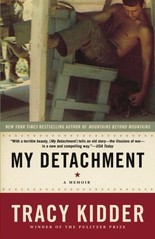 My Detachment Tracy Kidder (2005) Pulitzer Prize winner Kidder (The Soul of a New Machine) uses his gift for narrative nonfiction in this memoir of his year in Vietnam as a young army officer. This isn't a blood-and-guts thriller, but a story of painful self-revelation and amusing coming of age. He joined the ROTC as a confused Harvard student and ended up in a not very dangerous corner of Vietnam monitoring radio patterns. His attempts to command his detachment of bored enlisted men and his letters home, laced with fictional heroics, could have been the stuff of melodrama, but Kidder's storytelling and humor rise above. His account is an introspective, demythologizing dose of reality seen through the eyes of a perceptive, though immature, army intelligence lieutenant at a rear-area base camp. War isn't hell here; it's "an abstraction, dots on a map."
0 Comments
Leave a Reply. |
AuthorTo find out more about me, click on the Not Your Average Jo tab. Archives
February 2024
Categories
All
|
 RSS Feed
RSS Feed